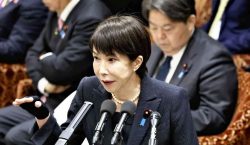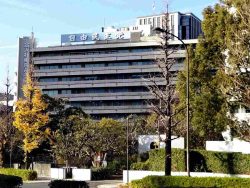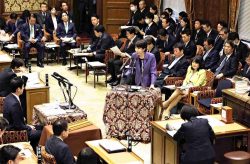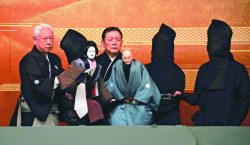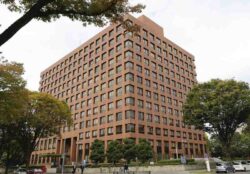Diet Committee Agrees on Importance of Fact-Checking to Tackle Fake News During Constitutional Referendums
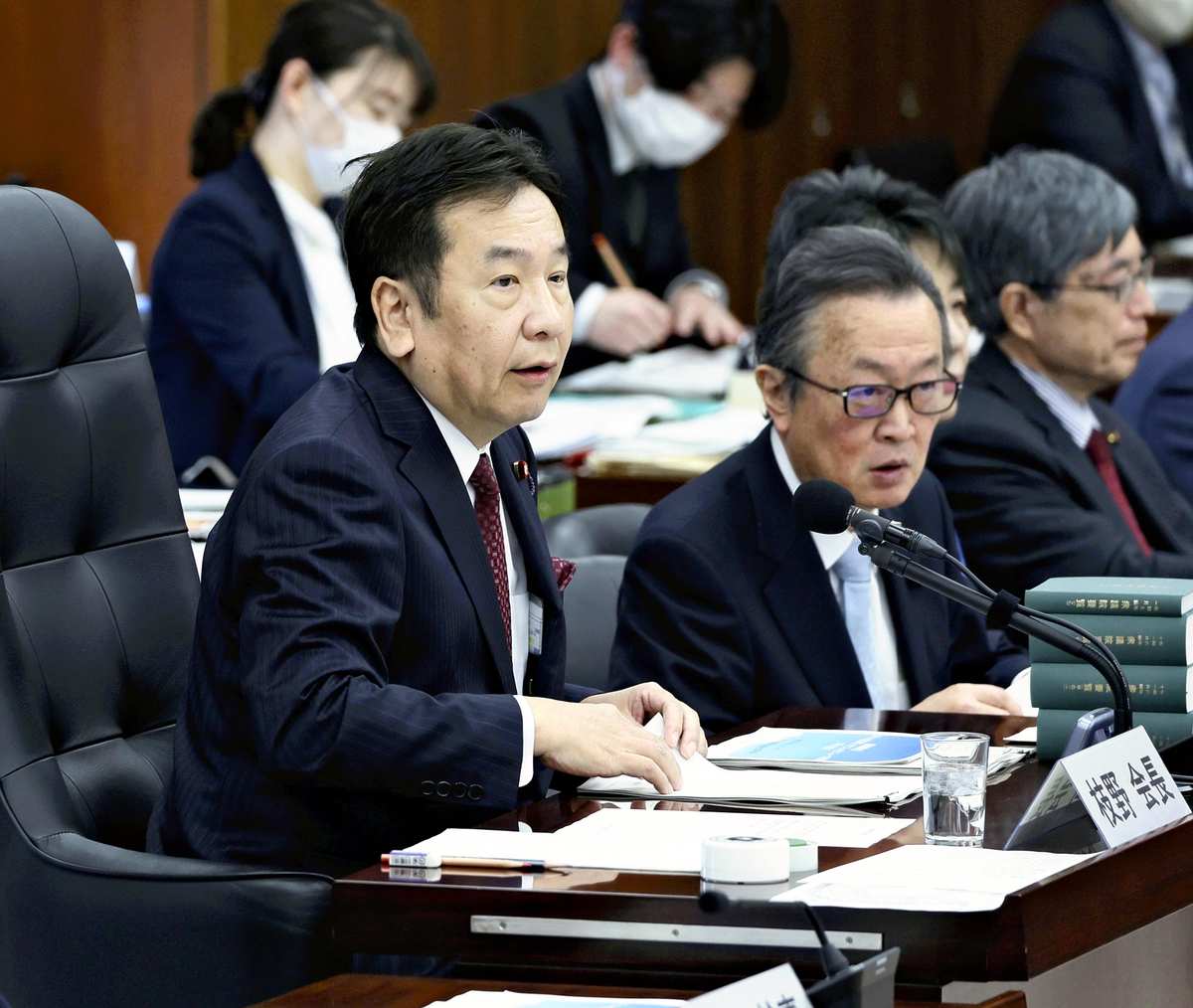
Yukio Edano, left, chairman of the lower house’s Commission on the Constitution and a member of the Constitutional Democratic Party of Japan, speaks at the Diet on Thursday.
17:17 JST, April 11, 2025
During a debate on combating fake news online about Constitutional revisions, the House of Representatives’ Commission on the Constitution affirmed the importance of fact-checking to verify the accuracy of information.
The discussion on Thursday also included proposals for using Originator Profile (OP), a digital technology that identifies the source of information online.
This is the first time that the ruling and opposition parties have engaged in a full-scale legal debate on regulating misinformation on social media.
“The harm caused by the circulation of disinformation and misinformation has grown immensely. Democracy is in crisis,” said Minoru Terada, a member of the Liberal Democratic Party. He called for countermeasures such as fact-checking to prevent the spread of such inaccuracies.
However, Terada also argued that government intervention should be avoided as much as possible and suggested that the issue be left primarily to fact-checking organizations.
There have also been proposals to offer government aid to private fact-checking organizations with weak monitoring systems and financial bases.
Yuichiro Wada, of the Japan Innovation Party, spoke about the role of news organizations, saying: “They verify and disseminate information. They are an important and fundamental part of the social fabric.”
To curb the spread of misinformation, Komeito member Koichi Kasai suggested requiring that information come with a displayed source, and highlighted the effectiveness of OP technology, which electronically embeds sender information and is certified by a third-party organization.
Keiro Kitagami, of the Yushi no Kai caucus of independent members in the lower house, said, “I wonder if it is possible to effectively counter misinformation by simply cooperating with private organizations out of a reluctance to intervene using public authorities.” He argued that the national referendum public relations council, which is expected to be established in the Diet when a constitutional amendment is proposed, should proactively conduct fact-checking.
Many lawmakers are still opposed to regulating online posts, due to concerns that this would conflict with constitutional guarantees to freedom of expression and freedom of political activity.
“The simple regulation of social media for elections and political campaigns could easily restrict freedom of expression, and therefore must be considered with caution,” said Satoru Okada, of the Constitutional Democratic Party of Japan.
The commission plans to invite experts as early as next month to hear their views, and will continue discussions on specific regulatory measures.
Top Articles in Politics
-

Japan PM Takaichi’s Cabinet Resigns en Masse
-

Sanae Takaichi Elected Prime Minister of Japan; Keeps All Cabinet Appointees from Previous Term
-

Japan’s Govt to Submit Road Map for Growth Strategy in March, PM Takaichi to Announce in Upcoming Policy Speech
-

LDP Wins Historic Landslide Victory
-

LDP Wins Landslide Victory, Secures Single-party Majority; Ruling Coalition with JIP Poised to Secure Over 300 seats (UPDATE 1)
JN ACCESS RANKING
-

Producer Behind Pop Group XG Arrested for Cocaine Possession
-

Japan PM Takaichi’s Cabinet Resigns en Masse
-

Man Infected with Measles Reportedly Dined at Restaurant in Tokyo Station
-

Israeli Ambassador to Japan Speaks about Japan’s Role in the Reconstruction of Gaza
-

Videos Plagiarized, Reposted with False Subtitles Claiming ‘Ryukyu Belongs to China’; Anti-China False Information Also Posted in Japan


